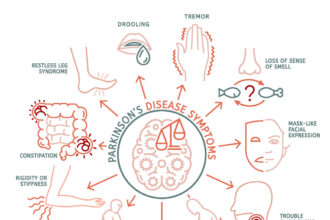A recent clinical study led by a research team at the Universitat Oberta de Catalunya (UOC), in collaboration with the Hospital Sant Pau in Barcelona, has revealed promising results regarding the benefits of theatre on the emotional well-being of people with Parkinson’s disease. Published in the journal Arts & Health under the title “Efficacy of a Theatre-Based Intervention in Patients with Parkinson’s Disease” (2025), the study marks the first formal evaluation of the combined effects of both active and passive engagement in theatrical activities on emotional and cognitive health in this population. The initiative was also backed by the Teatre Lliure, one of Barcelona’s leading cultural institutions, highlighting a fruitful union between healthcare research and the performing arts.
The project included 34 participants aged between 50 and 75 who were living with Parkinson’s disease. These individuals were divided into two distinct groups: one participated in a structured three-month theatre programme hosted at Teatre Lliure, which included live performances, interactive workshops, and a guided tour of the venue; the other group remained at home, engaging in cognitive stimulation exercises. Both groups were evaluated before and after their respective interventions using neuropsychological testing and standardised questionnaires that measured mood, perceived quality of life, and self-reported cognitive changes.
From an emotional perspective, the results were compelling. Participants in the theatre group demonstrated a significant improvement in emotional well-being, as measured by the Parkinson’s Disease Questionnaire (PDQ-39), a widely used tool for assessing quality of life. This enhancement was not mirrored in the group that performed at-home cognitive tasks. Notably, both groups did experience reductions in anxiety and depression, which suggests that while cognitive stimulation has its merits, theatre offers unique advantages. The shared emotional and social experience of live performance and participation in creative group work appeared particularly effective in lifting mood and countering feelings of emotional isolation.
A particularly striking finding of the study was the immediate impact of group theatre workshops on participants’ emotional state. Pre- and post-session evaluations indicated a marked decrease in emotional burden following each workshop, suggesting that theatrical engagement may offer a powerful outlet for emotional processing. Researchers attributed this effect to theatre’s inherent demand for expressive communication and emotional openness, which enables participants to externalise their inner experiences in a safe and structured environment. The communal nature of these workshops also played a key role, encouraging empathy and mutual support among participants.
The theatre programme itself was thoughtfully constructed. It combined five live performances—each paired with preparatory sessions designed to enhance audience engagement—with five workshops led by professional actors and theatre facilitators. These workshops used techniques such as physical warm-ups, spatial awareness exercises, improvisation, and collaborative storytelling to target emotional expression and body awareness. According to the researchers, these methods are central to the benefits observed, as they enable participants to explore and articulate their emotions while reinforcing a sense of physical presence and interpersonal connection, both of which are often diminished in individuals with Parkinson’s disease.
While objective measures of cognitive function did not reveal significant changes, participants in the theatre group reported a subjective improvement in their day-to-day cognitive abilities. This enhanced self-perception may lead to greater confidence in managing everyday tasks, thereby indirectly contributing to improved quality of life. Participant feedback was overwhelmingly positive, with the workshops receiving an average satisfaction score of 4.5 out of 5, theatre performances 4.4, and the guided tour 4.8, suggesting that, beyond clinical measures, the programme succeeded in delivering a significant experience to those involved.
This pioneering study adds to a small but growing body of research advocating the integration of artistic practices into therapeutic contexts. Until now, only two other studies had investigated the use of theatre for people with Parkinson’s, both yielding encouraging but unconfirmed outcomes. The rigorous methodology employed in this new research strengthens the case for theatre as a complementary treatment, particularly for symptoms that do not respond well to pharmacological interventions, such as apathy and social withdrawal. The findings align with the World Health Organization’s 2019 recommendation endorsing the arts as a “social prescription” to enhance well-being. As Parkinson’s diagnoses continue to rise—currently affecting between 120,000 and 150,000 individuals in Spain, with 10,000 new cases each year—creative, community-based interventions like these may offer invaluable tools for improving the lives of those living with the disease.
More information: Marco Calabria et al, Efficacy of a theatre-based intervention in patients with Parkinson’s disease, Arts & Health. DOI: 10.1080/17533015.2025.2488361
Journal information: Arts & Health Provided by Universitat Oberta de Catalunya (UOC)








